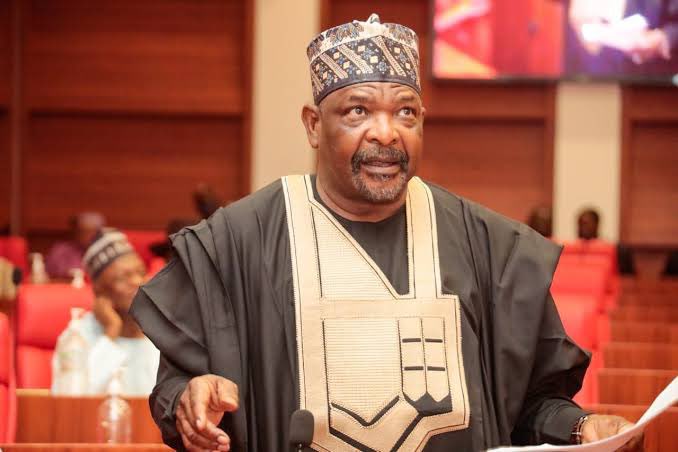
Senator Ningi’s Revelation: Nigeria’s Battle for Transparency
In Nigeria, various processes of democracy occur annually, biennially, and every four years. One of these processes is the budgeting process which takes place yearly. This is necessary because it outlines the government’s revenues and expenditures for the fiscal year. The process starts with planning and formulation by the executive arm, followed by review and approval by the legislative arm. The third phase is implementation, and the last phase is execution and oversight. However, in recent years, budget padding has become a recurring issue in Nigeria, with cases often arising during the budget cycle.
Budget padding refers to the illicit insertion of funds into the budget for projects that are either overpriced or non-existent. The recent controversy involving Senator Ningi, reported to have exposed a staggering 3.7 trillion Naira padding in the 2024 budget, has once again brought this issue to the forefront of national discourse.
He made the allegation last Saturday while speaking with BBC Hausa. He alleged that the Federal Government is operating two versions of the 2024 budget and that the N28.7 trillion Budget passed and signed into law by President Bola Tinubu was skewed against the North.
Senator Ningi’s allegation didn’t go down well as many Senators and the Presidency pounced on him, describing his claims as “far-fetched and unbecoming of a leader of his status”.
However, the situation took a dramatic turn when Ningi denied saying that the country is operating two budgets but insisted that only N25trn of the budget was tied to projects while N3.7trn had no project tied to it. This denial came after the Senate moved to suspend him for three months over the supposed revelation.
In a bid to clarify the issue, the presidency came out to say that the National Assembly padded the budget with N1.27 trillion, adding that it does “not see where the N3tn is coming from.”
Reacting to the issue, the Director of BudgIT, Seun Onigbinde opined that Senator Ningi was right if he posited that there was no detailed allocation for N3.7 trillion in the 2024 budget. According to Onigbinde, “statutory elements” in the budget that do not have a comprehensive analysis.” He also faulted the allocations of the National Assembly, National Judicial Council (NJC), Independent National Electoral Commission (INEC), Tertiary Education Trust Fund (TETFund) and others which do not carry a detailed breakdown.
The conflicting reports have left the public confused, questioning the integrity of the budgeting process and the transparency of their elected officials. This is not the first time that the National Assembly will be enmeshed in such allegations. A similar thing happened in 2016 when Hon. Jibrin Abdulmumin, former Chairman of the House Committee on Appropriations, accused the Speaker and some principal officers of padding the budget with billions of Naira across over 2,000 fictitious constituency projects.
Former President Buhari expressed his concerns in 2022 about changes made by the National Assembly to the budget. He stated that these changes included new insertions, outright removals, reductions and/or increases in the amounts allocated to projects. Buhari also highlighted that provisions for 10,733 projects were reduced, while 6,576 new projects were introduced by the National Assembly.
Unfortunately, we are now witnessing a practice where state and local government projects are being inserted into the national budget. This is unacceptable and cannot continue. Budget padding undermines the very foundation of democratic governance, which is built on trust and accountability. It diverts funds meant for public development into private pockets, worsening an already dire situation of underdevelopment and poverty in the country.
The recent revelation that the National Assembly added 1.27 trillion Naira to the budget raises questions about this administration’s commitment to running a transparent government that is free of waste and misuse of public funds, as was experienced in the previous administration.
Senator Ningi’s allegations must not be dismissed or politicized along ethnic or party lines. As a seasoned lawmaker, his claims warrant serious consideration. Addressing this controversy should prompt a reevaluation of the budgeting process, advocating for structural reforms to enhance accountability and transparency. The budgeting process needs to be reformed if we wish to harness the potential for the greater good of Nigerians.
The government must take decisive steps to reform the budgetary process. Implementing a transparent and participatory budgeting system, where civil society and the general public can scrutinize and contribute to the budget before it is finalized, could be a significant step towards curbing the menace of budget padding.
Moreover, strengthening the role of anti-corruption agencies and ensuring the independence of the judiciary is essential in holding individuals accountable for manipulating the budget. The government must also invest in digitalizing the budget process, making it more difficult for unscrupulous elements to alter financial documents undetected.
Merely suspending Senator Ningi will not resolve the underlying issue. Nigerians demand transparency and accountability in the budgeting process, signalling a need for substantive reforms to uphold democratic principles and ensure public trust. Nigerians will not ‘off the mic’ on this issue.
